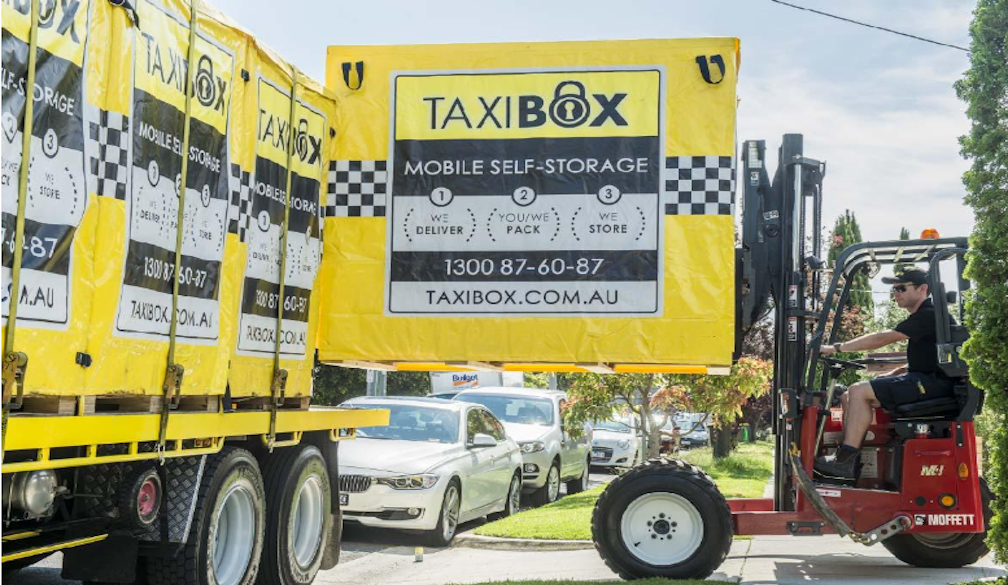Understanding Market Gaps: Insights from Taxibox
- Written by Daily Bulletin

Market gaps refer to unmet consumer needs or underserved segments in the market that present potential business opportunities. Identifying and addressing these gaps can be crucial for business growth and differentiation in a competitive landscape. Taxibox, an innovative storage solutions provider, has successfully navigated the complexities of market gaps, offering valuable lessons for businesses aiming to capitalise on similar opportunities. Understanding the strategies and experiences of Taxibox can provide practical insights for companies looking to grow and thrive. This article explores Taxibox’s journey in identifying and filling market gaps, offering actionable insights for businesses.
What Are Market Gaps?
Market gaps exist when there's a discrepancy between consumer demand and available supply. These gaps can arise across various industries, from technology and retail to healthcare and logistics. For example, before the advent of smartphones, there was a significant gap in mobile communication and computing, which companies like Apple and Samsung effectively filled.
Identifying market gaps is essential for discovering new business opportunities. By recognising where consumer needs are not fully met, businesses can develop products or services that fulfil these demands, thereby gaining a competitive edge. Common methods to identify market gaps include market research, customer surveys, data analysis, and competitive benchmarking.
Successful businesses have often built their success on identifying and exploiting market gaps. Take ride-sharing companies like Uber, for instance. They identified a gap in efficient, reliable, and easily accessible transportation services. By offering a solution that was more convenient than traditional taxis, they revolutionised the industry.
Taxibox’s Journey: Identifying Market Gaps
Taxibox, a pioneer in the storage industry, offers a compelling example of how identifying market gaps can lead to business success. Ben Cohn, co-founder of Taxibox, recognized early on that the storage industry was crowded with traditional options, such as self-storage facilities, which required customers to transport their belongings to a distant location.
In its early days, Taxibox faced significant challenges. The storage industry was crowded with traditional options, such as self-storage facilities, which required customers to transport their belongings to a distant location. Taxibox recognised a gap – the inconvenience and hassle of traditional storage solutions.
To address this, Taxibox conducted extensive market research and listened to customer feedback. They discovered that many people were dissatisfied with the time-consuming and laborious process of moving items to storage facilities. By bringing storage units directly to customers, Taxibox offered a unique and convenient alternative that quickly gained traction in the market.
Strategies Used by Taxibox to Fill Market Gaps
Taxibox introduced several innovative strategies to fill the identified market gaps. Firstly, they developed a mobile self-storage solution that stood out for its convenience and flexibility. Customers could have a storage unit delivered to their home, load it at their convenience, and then have it transported to a secure storage facility.
Understanding that customer needs can vary, Taxibox also diversified its services. They offered long-term and short-term storage options, catering to different customer segments, including homeowners undergoing renovations, students requiring temporary storage, and businesses needing extra space.
Marketing strategies were crucial in communicating Taxibox's unique value proposition. The company employed digital marketing campaigns, SEO optimisation, and social media engagement to reach potential customers effectively. Clear, customer-centric messaging highlighted the convenience and efficiency of their services, setting them apart from traditional storage providers.
Continuously seeking to refine their approach, Taxibox implemented feedback mechanisms to understand customer satisfaction and identify areas of improvement. Regular surveys, online reviews, and direct customer interactions provided valuable insights, enabling Taxibox to adjust their offerings and maintain high customer satisfaction.
Taxibox’s Impact on the Industry
A notable case study of Taxibox’s success involves their intervention in the Sydney storage market. Before Taxibox's entry, customers had limited options that generally involved renting self-storage units at distant locations. Taxibox's mobile approach addressed this inconvenience by eliminating the need for multiple trips and additional transportation costs.
Customer testimonials underscore the positive impact of Taxibox's services. Many noted the simplicity of the process and the peace of mind that came with having their belongings securely stored without heavy lifting. One customer highlighted how Taxibox's service saved them considerable time and effort during their home renovation.
Quantitative results also testified to Taxibox's success. The company saw significant growth in market share, driven by high customer satisfaction and positive word-of-mouth referrals. This growth prompted competitors to adopt similar mobile storage solutions, but Taxibox's early entry and continuous innovation kept them ahead.
Lessons Learned from Taxibox’s Experience
Taxibox’s journey offers several key takeaways for businesses aiming to identify and fill market gaps. Firstly, understanding customer pain points and addressing them with innovative solutions can distinguish a business in a crowded market. It's essential to listen to customer feedback and adapt services accordingly.
One common pitfall to avoid is assuming that traditional methods will always suffice. Taxibox’s success shows that challenging conventional practices and offering more convenient alternatives can open new market opportunities. Businesses should also be prepared to pivot and refine their strategies based on customer feedback and market trends.
The importance of agility cannot be overstated. Markets evolve rapidly, and businesses must remain flexible to adapt to changing consumer preferences and technological advancements. Engaging in continuous market research ensures that companies stay attuned to emerging needs and potential gaps.
Looking ahead, future trends indicate a growing demand for convenience and personalised services across industries. Businesses that can anticipate these trends and position themselves early will be well-placed to capture new opportunities. The principles demonstrated by Taxibox, such as customer-centric innovation and agile adaptation, remain highly relevant in this context.
Conclusion
Market gaps represent a vital component of business strategy, offering opportunities for growth and differentiation. Taxibox's experience highlights the importance of identifying and addressing these gaps through innovative solutions and a customer-focused approach. By studying their journey, businesses can learn valuable lessons on leveraging market gaps for business growth.
Taxibox's success story underscores the significance of agile, feedback-driven strategies in meeting and exceeding customer expectations. As markets continue to evolve, staying vigilant in identifying new gaps and responding with tailored solutions can drive sustained success.
Businesses are encouraged to actively seek out market gaps and apply the insights gained from Taxibox’s experience. By doing so, they can unlock new avenues for growth and maintain a competitive edge in an ever-changing marketplace.








